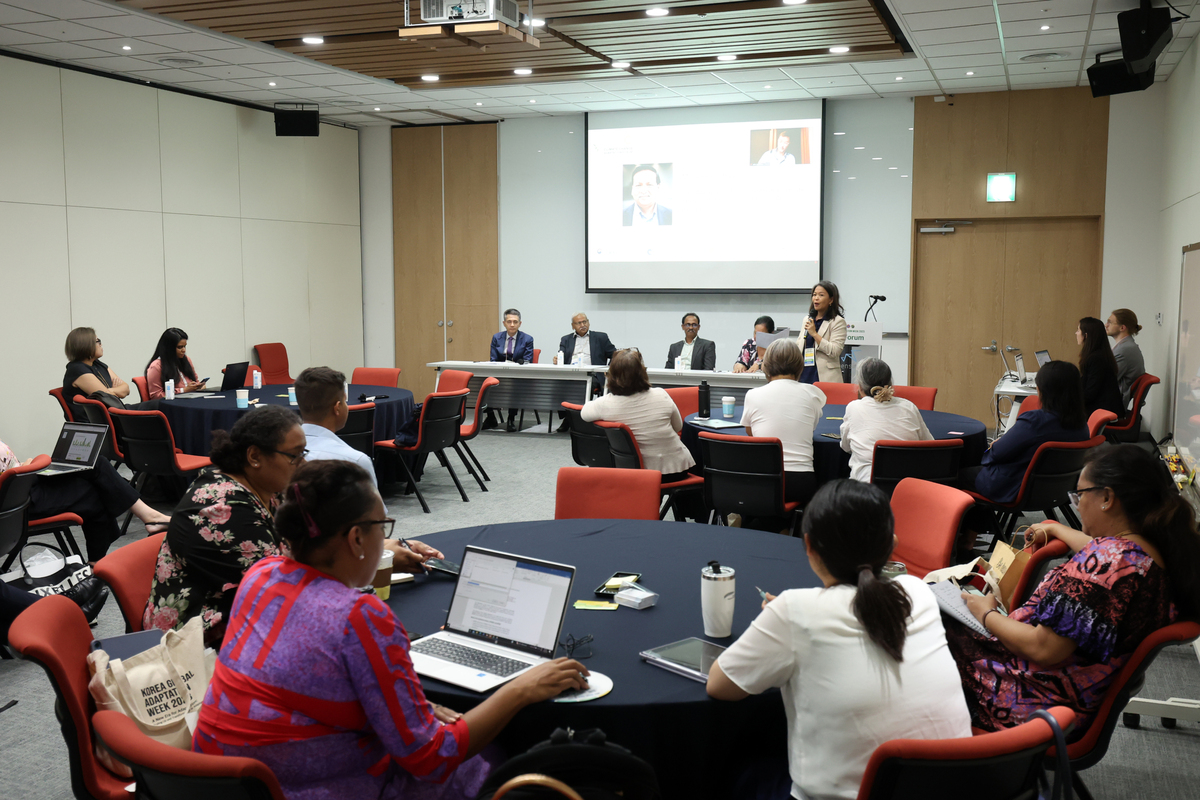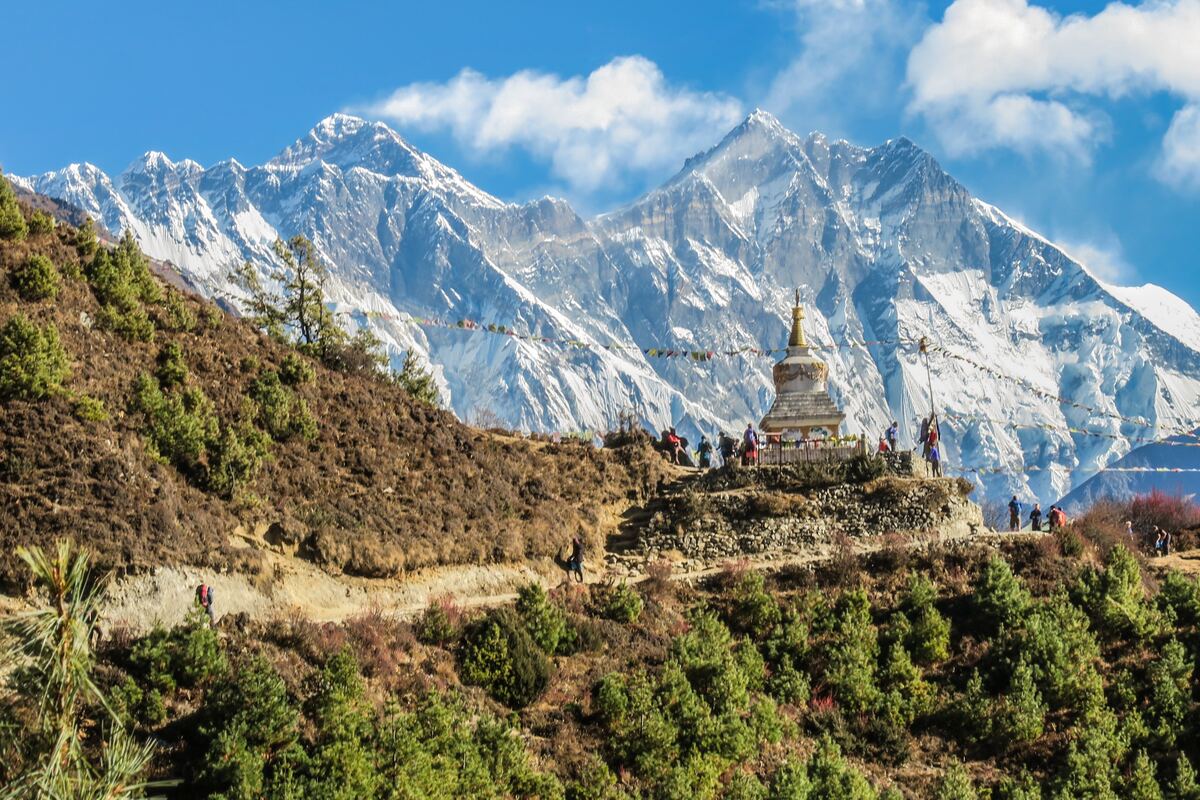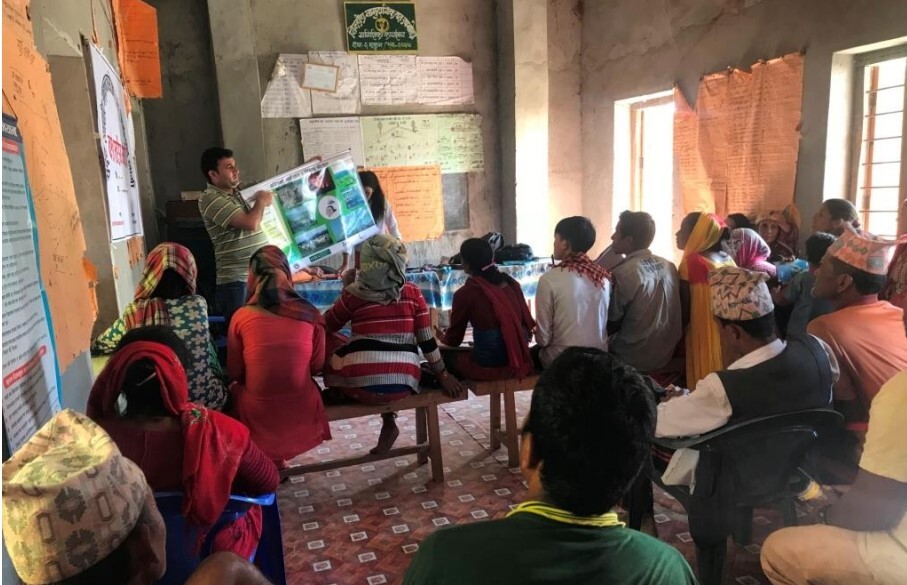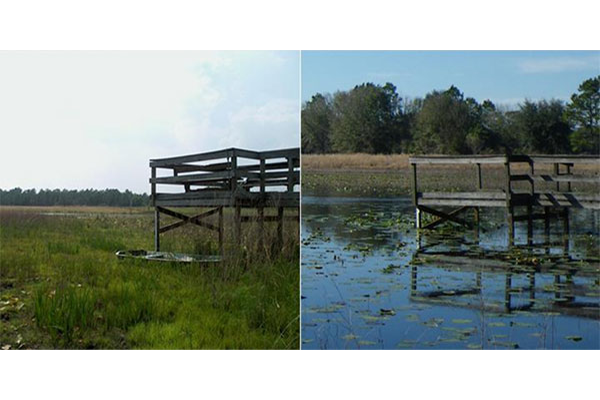
HUC General Assembly, Kathmandu, October 2018 Photo by ICIMOD
BASIC INFORMATION
Overview
The Himalayan University Consortium is a thriving network of 100+ universities in the eight Hindu Kush Himalayan countries and other regions in the world, with a 600++ strong community of portal users and fellows. The HUC core values are Mountain focus, Inter- and Trans-disciplinarity, Diversity, and Distributive Leadership.
Headquaters: Kathmandu, Nepal
Established: 2007
MISSION
The HUC mandates are to enable regional academic cooperation and nurture a generation of scholar-leaders for sustainable mountain futures. The Consortium works to strengthen connections between knowledge-generating and decision-making institutions, creating new opportunities for transdisciplinary and transboundary research collaboration and enhancing mountain-specific research.
Summary of Key Activities
- Activity 1: Foster productive collaboration between universities in the same country and between neighboring countries in the HKH, facilitating mountain-specific, problem-based, solution-driven research, innovation, education, and practice.
- Activity 2: Build a new generation of transformational leaders committed to advancing HKH-specific research and innovative policy solutions.
- Activity 3: Amplify mountain voice in global fora and platforms and join strategic international alliances in speaking science to power to attract investment for a sustainable, fair, and inclusive HKH.
Activity 1
To foster collaboration between universities and knowledge institutions in the same country and between neighboring countries in the HKH, individual researchers and scholars who share similar interests and willingness to collaborate come together to form Thematic Working Groups and Cross-Cutting Workgroups. These groups operate on a leadership-sharing and resource-pooling basis. Through collaborative research, training, and outreach, these groups: i) empower South-based scholars to take the lead in South-South-North collaboration in setting research agenda; ii) ensure the inclusion of end-users and their perspectives and ownership in the research process and continued uptake after the completion of the research; and aspire to iii) guarantee access to the field and sustainability of data management according to FAIR and CARE principles.
Case for Activity 1
In the FAO International Year of Millets 2023, the HUC Thematic Working Group on Mountain Agriculture, led by Dr. Chubbamenla Jamir and Dr. Grady Walker, gathered 12 experts, policy makers, and practitioners from Bhutan, India, and Nepal to share their knowledge and experience on the importance of millets in food and nutrition security for mountain communities that face climate-induced and other socio-economic challenges. They jointly drafted three country-based Policy Briefs on Millets. The Policy Briefs were endorsed by the government of Nagaland (North East India) and Nepal.
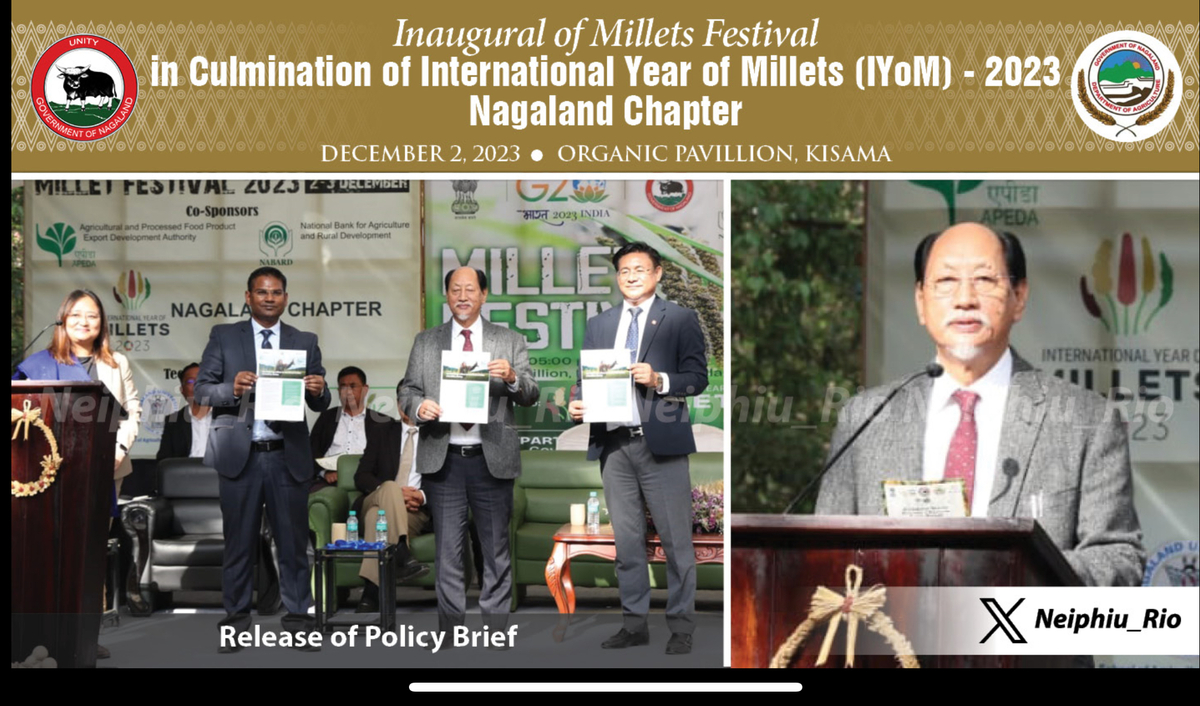
Launch of Millets Policy Brief in Nagaland, India
Activity 2
Between 2017 and 2019, the HUC offered an annual two-week intensive field school called HUC Academy, catering to early-/mid-career researchers, professionals, government officials, and practitioners on a wide range of topics of natural resource management, focusing on inter- and trans-disciplinary approach. During Covid-19 pandemic-induced mobility restrictions, the Consortium offered high-quality virtual programme. Since 2021, the HUC continued capacity-building activities in hybrid modality. More than two hundred HUC fellows (about 30 percent of whom are female) who completed HUC programmes continue to apply their knowledge and skills at their workplace. The capacity building materials are being consolidated and digitalized, to be made available through prestigious, free, or low-cost global knowledge-providing platforms such as GIZ atingi, edEx, and Panopto. The first set of e-courses on natural resource management will be launched on atingi in English, Hindi, and Nepali in 2024.
Case for Activity 2
In 2022, the HUC, in collaboration with Potsdam Institute of Climate Impact Research, organized a virtual intensive programme titled Teaching sustainability and localising the SDGs in the Hindu Kush Himalaya, catering to 25 early-/mid-career researchers, university lecturers, and professionals in the region. Not only participants were imparted with updated knowledge about SDGs and the importance of localising them with HKH-specific context, but they also had an opportunity to put their new understanding about adult learning into practice.
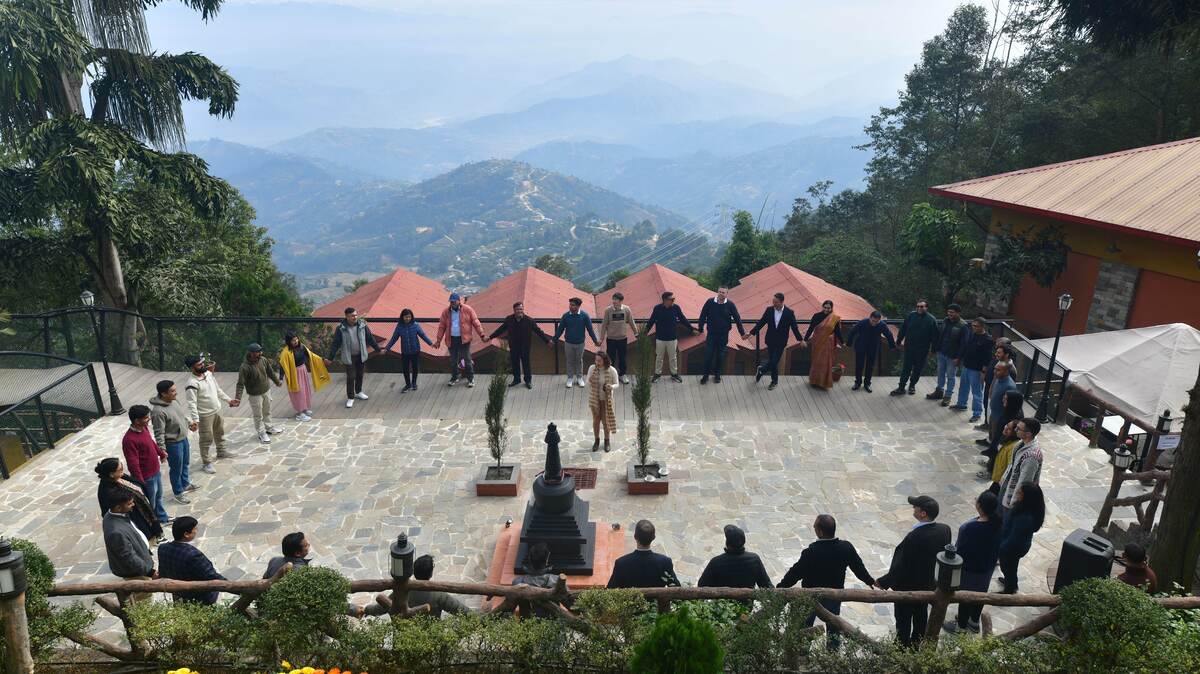
HydroHimalaya NORHED II mentorship programme outdoor activity
Activity 3
The HUC hosts the Himalaya Hub of the WCRP My Climate Risk Lighthouse Activity, an initiative that aims to develop a new framework for assessing and explaining regional climate risk that will make climate information more meaningful at the local scale, to empower the local communities make sense of their situation. The HUC participates and contributes to knowledge and experience sharing events organized by many of the 16 regional hubs of My Climate Risk. Through these international interactions, the HUC shares its HKH-specific experiences and lessons learned of what works, what does not work in scientific and inter/transdisciplinary cooperation for meaningful climate action.
Case for Activity 3
In 2023, the HUC supports Ms. Sameera Nori, an Afghan female practitioner in disaster and humanitarian response and community educator, to speak at the WCRP Open Science Conference in Kigali (Rwanda, October 2023), highlighting the experiences of local communities in Afghanistan who faced stacking-up challenges of climate change and post-war socio-economic and political processes. She highlighted the perception of risks – climate change and otherwise – and real-life experiences of hazards as they happened and called for emboldened action for climate justice.

